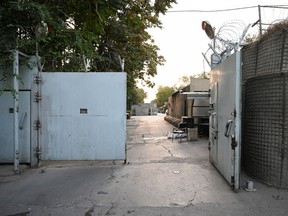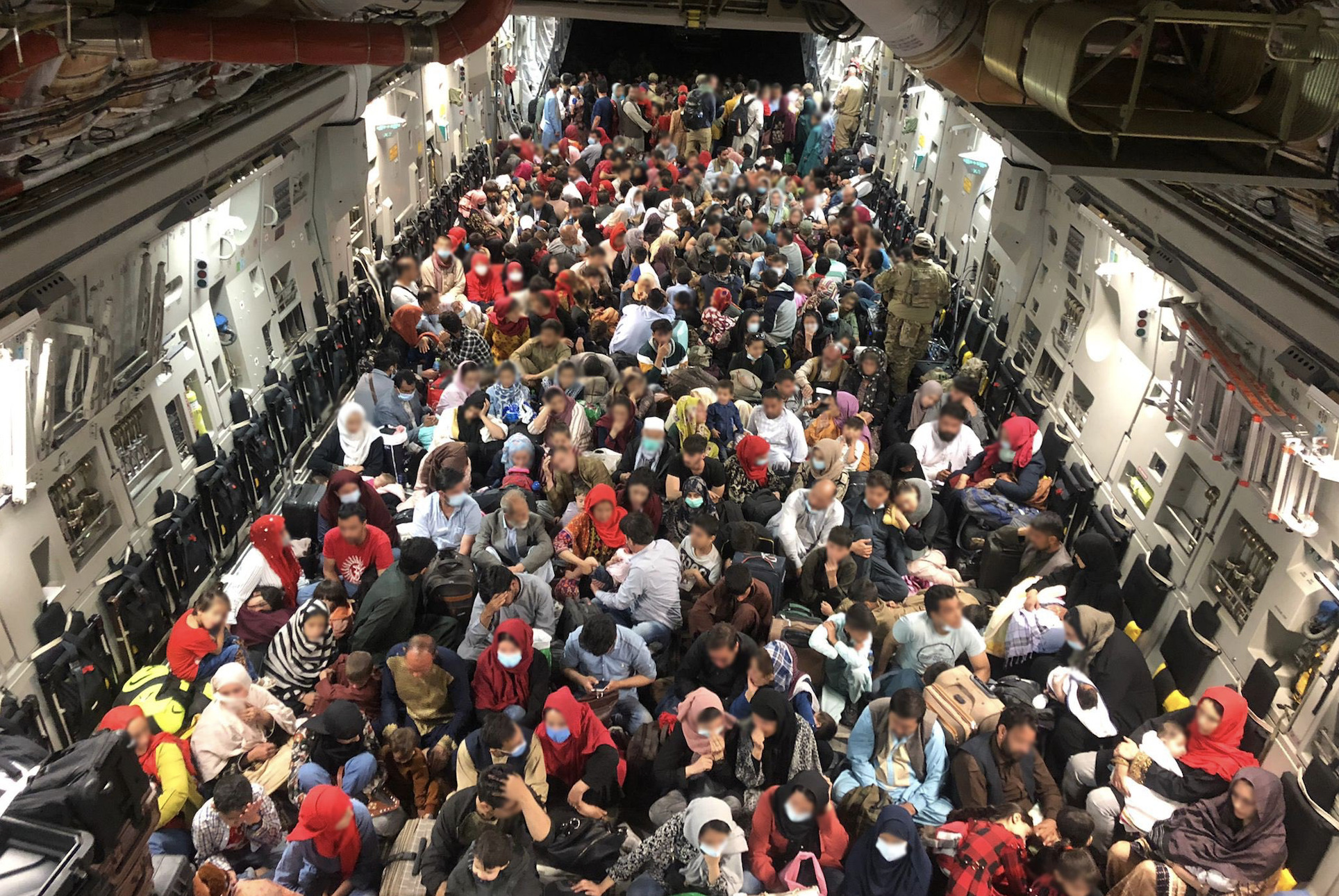Risking Their Lives For Which Country?
"In a way we are being punished for our services because, frankly speaking, we were the eyes and ears of the Canadian government on the ground.""We risked our lives and our families' lives and this is the reward we get ...""It could not be any more un-Canadian."Afghan, formerly locally engaged at the Canadian Embassy in Kabul"We can't forget that these Afghans put their lives on the line to assist Canadian diplomats and armed forces during the war and in its aftermath.""We owe them a debt of gratitude."Member of Parliament Michael Chong, co-chair, Afghanistan committee"In the last few years, when there was a large number of targeted assassinations ... we felt a lot of danger going and coming from the office.""Many of us did receive [threats]."Afghan, formerly locally engaged at the Canadian Embassy in Kabul
 |
Canada
rescued many but not all of the Afghan citizens who had worked for the
Canadian Embassy, for Canadian troops stationed in Afghanistan as
interpreters, office workers, and in many other capacities. They took
these positions presumably because they welcomed a foreign presence in
their troubled country, so long abandoned to conflict between religious
factions, the population's liberty held under threat by the
fundamentalist Islamist Taliban. They also worked in these positions to
be paid salaries far in excess of what Afghans normally earn.
The
entry of a UN-approved, NATO/US-sponsored mission to find Osama bin
Laden, al-Qaeda forces and oust the Taliban, sheltering them in
Afghanistan while governing the country as a theocratic Islamist
dictatorship succeeded for the years of the military occupation at
keeping the Taliban -- supported, trained and armed by the Inter-Agency
Services of the Pakistani government -- at bay. When the Taliban finally
returned to power on the strength of overwhelming Afghan government
troops through violent insurrection, NATO nations departed under a
disastrous agreement between the Taliban and the U.S.
Most
of those nations felt obligated to help Afghan nationals who would be
targeted in revenge action by the Taliban, to escape their country of
origin, and Canada was among them. Thousands of Afghan civilians and
their families were flown at their request, from Afghanistan where they
felt threatened, to Canada, to be re-settled there as landed immigrants.
While Canadian servicemen and those assigned to the mission felt a
loyalty to the safety of the Afghans who had worked among them, the
Afghans now living in Canada courtesy of the government and the
generosity of taxpayer, feel themselves put upon.
People
who live in undeveloped or under-developed, or developing countries
envy a Canadian way of life because they have the impression that Canada
is a wealthy society. And it is. Yet that same wealthy society has
among its population an economically poor demographic of people living
hand-to-mouth, supported by governmental social services and charity.
The Afghan citizens, now in Canada as landed immigrants and heading
toward citizenship, were gifted entry to Canada, and social supports on
arrival.
They
were also the recipients of large cash payouts representing severance
and pension payouts since they were of necessity laid off when Canada
closed its embassy on the return to power of the Taliban. That cash
payout was taxed; in instances where the payout amounted to a lump sum
of $300,000, the tax deducted was $130,000. The recipients of the
payouts paying tax on the funds are outraged; claimng it to be
un-Canadian. How so? And what would they know about Canadian taxation,
which in fact, paid for their rescue?
| Photo: Reuters |
When
Canadians abroad are in trouble, are robbed, lose their passports and
their money, they call on Canadian consular officials for aid. Who then
go about effecting their return to Canada. Their Canadian bank accounts
are accessed to fund their airfare returning to Canada. If they have no
banked funds, the government uses tax dollars to return them to Canada,
to the nearest point of entry, allows them an amount of cash, and
they're on their own.
Those
complaining of being taxed on funds they feel they are entitled to,
join Canadians in protesting high taxes, and at the same time
understanding that taxes fund the services they receive as Canadians.
Claiming that their actions in working for Canadian aid agencies,
military and the diplomatic mission in Kabul was a sacrifice for Canada,
putting their lives on the line, have a strangely skewed perspective.
In
actual fact, they sacrificed themselves for their country, envisioning
the kind of government they would vastly prefer to live under. And it
was their hope to attain that kind of government for their country that
they 'risked their lives' for. Canada was merely an instrument hoping to
help Afghanistan approach that goal. And the initiative failed.
Canada's
gratitude to those whom they employed as 'locally engaged' in the Kabul
mission should be matched by the locally-employed, flown to Canada with
their families to ensure their safety and allow them a different future
for themselves. This complaint over helping to pay their way is
ungracious and unseemly. Taxation, in this instance, is logical and it
is fair.
Welcome to Canada.
Entitled just so much, and no more.
"[Taxation is based on residency status at the time of payment] and not where the money was earned.""In the case of Kabul LES [locally engaged staff], they have the permanent residence, a Canadian bank account and social security numbers and this being said, they have established significant residential ties in Canada."Information mailed to LES by Global Affairs Canada
 |
| RCAF operates large evacuation flight from Kabul |
Labels: Afghanistan, Canadian Embassy in Kabul, Locally Engaged Staff, NATO Mission, Payout/Taxation, Taliban

<< Home